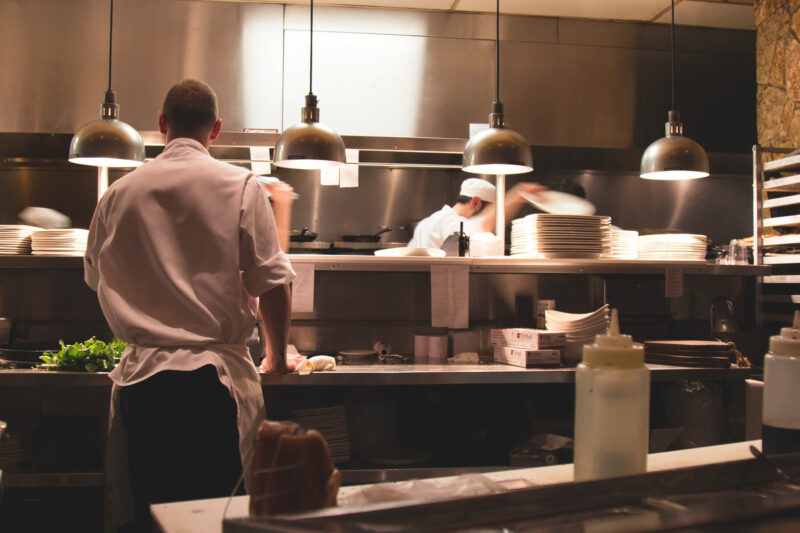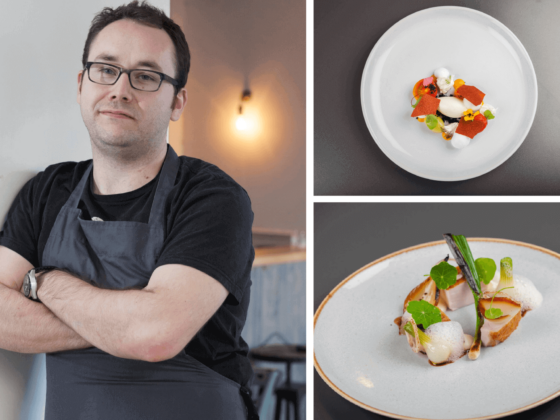According to the European Commission, 88 million tonnes of food are wasted annually in the European Union. That is about 143 billion euros and 3.3 gigatonnes of CO2 emissions. As a matter of fact, one third of food produced globally is lost, either during processing or at a retail or consumer level, the latter being more common for industrialised countries. In Europe, around 12% of total food waste comes from food services.
In this article you will find out why you should start a restaurant food waste reduction programme and how it would benefit your business, all while making a positive impact on the world.


3 reasons why your restaurant business can benefit from a food waste reduction programme
Strengthen your team and business culture
Reducing waste is not just about helping the environment and feeding the hungry. Firstly, taking action has psychological benefits on a personal level. Secondly, the intrinsic rewards gained by starting a food waste programme can add value to your business and create a stronger culture. This can ensure you and your team share the same vision and are aligned towards the same goals. Additionally, it encourages collaboration, therefore strengthening the team dynamics. Ultimately, the benefits are even greater: over the years studies have shown that culture fit leads to higher employee retention and a higher job performance.
Improve your brand image
A report by Unilever shows that one third of consumers prefer sustainable brands. This refers to brands that work towards making a positive social and environmental impact. Starting a restaurant food waste reduction programme can help you differentiate your business from your competitors. This will lead to increased customer loyalty and an improved and strengthened brand image.


Waste less, save more, do good
In the UK, the restaurant sector loses £682 million every year through food waste. By starting a waste reduction programme, your restaurant could save more than €9000 every year. You can ultimately use these avoidable costs to add value to your business through increasing staff salaries, providing training for your employees, or making small investments to grow your restaurant business further.
3 simple ways you can start reducing waste right now
Redesign the menu around reducing food waste
Simplify your menu. This is the easiest first step to reducing waste. As is it difficult to predict exactly what your customers will consume, by offering fewer dishes you can reduce wasted ingredients that would otherwise be used in less popular dishes. Likewise, you can set a fix menu like this restaurant to ensure the use of most ingredients purchased to prepare each dish. To use up ingredients that are close to their expiry date and would otherwise end up in the bin, set a daily lunch or dinner menu at a lower price. This can also be a great incentive to gain more customers!


Cook intelligently
Make the most out of every ingredient to save money and reduce waste. For example, use the fish fillets in a dish, and the leftovers (head, tail, bones) for a broth that can be the base of a second dish. Repurpose leftovers: stale bread doesn’t always belong in the bin – upcycle it into breadcrumbs, croutons or dumplings. Finally, don’t serve more food on a plate than you can eat yourself!
Use apps to help you reduce waste
There are several apps available in Europe that can help your restaurant business reduce restaurant food waste by tracking and monitoring it, or selling otherwise wasted ingredients.
- Register your business on Too Good To Go to sell your food surplus to your local communities. The app can benefit you in multiple ways: you gain a little extra money on ingredients otherwise wasted, help your local community by providing food cheaply and also help the environment.
- Start using Unilever’s food waste monitoring and tracking app, Wise Up On Waste. The app comes with a support toolkit with templates for purchasing lists, mise-en-place planning, menu engineering, plate waste monitor, recipe card and more.
- Invest in Winnow’s smart meter to track, analyse and report your restaurant food waste. The system aims at creating awareness of your food waste, but also measuring what tends to get wasted more, to help you readjust your menu and dish sizes.


Food for the greater good: how to help your community and reduce your restaurant food waste
Feeding the hungry
In the EU, around 8.1% of people cannot afford a high quality, nutritious meal regularly, 55 million people struggle to feed themselves and 33 million people are at risk of malnutrition.
Moreover, there is an estimated number of 4.1 million homeless people in Europe. During the Milan Expo in 2015, Massimo Bottura, owner of one of the top restaurants in the world, decided to address this issue. During the Expo, with the help of some of the greatest chefs in the world including Alain Ducasse, Ferran Adria and Rene Redzepi, Bottura managed to save 15 tonnes of food by opening a soup kitchen. Its success led to Food for Soul, a project that aims to reduce restaurant waste by repurposing leftovers into dishes that feed the hungry.


From farm to table
Relae Copenhagen, voted the World’s Most Sustainable Restaurant in 2015 and 2016, has an impressive waste management programme. They donate their organic waste to a psychiatric social activity centre that turn it into compost. The centre then uses the compost to grow organic fruits and vegetables that ultimately end up back in Relae’s dishes.
Research your local organisations to find out how you can tackle waste while also supporting your local community.


How can you make a difference?
In 2015 the UN compiled a set of sustainable development goals for the next 15 years. Before deciding how many of them you can work towards through a food waste reduction programme, think about your available resources and research local organisations that you could support. This can mean:
- Using your otherwise wasted food to feed your staff and their families
- Donating ingredients to a local organisation or charity of your choice
- Using leftovers to cook meals for a local soup kitchen
- Partnering with gardeners, farmers or other organisations to turn your organic waste into compost
- Starting your own cause and becoming a leader in restaurant food waste reduction
Whichever path you decide to embark upon, remember: every step matters, no matter how small!





0 comments
what year was this electronically published?
Angelica, I wrote this in September 2017 🙂